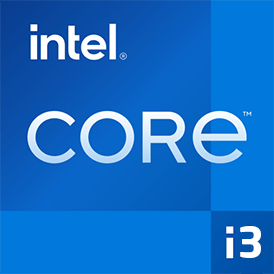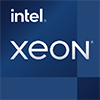
Intel Core i3-7020U Benchmark, Test and specs
Last updated:
The Intel Core i3-7020U is a 2 core processor. It can handle 4 threads simultaneously and was introduced in Q3/2018. The Intel Core i3-7020U is based on the 7. generation of the Intel Core i3 series and requires a mainboard with the socket BGA 1356. The Intel Core i3-7020U scores 571 points with one CPU core in the Geekbench 5 benchmark. When using all CPU cores, the result is 1,327 points.

| Name: | Intel Core i3-7020U |
|---|---|
| Family: | Intel Core i3 (205) |
| CPU group: | Intel Core i 7000U (18) |
| Architecture: | Kaby Lake U |
| Segment: | Mobile |
| Generation: | 7 |
| Predecessor: | -- |
| Successor: | -- |
CPU Cores and Base Frequency
The 2 CPU cores of the Intel Core i3-7020U clock with 2.30 GHz. The number of CPU cores and the clock frequency of the processor are largely responsible for the overall performance.
| CPU Cores / Threads: | 2 / 4 |
|---|---|
| Core architecture: | normal |
| Cores: | 2x |
| Hyperthreading / SMT: | Yes |
|---|---|
| Overclocking: | No |
| Frequency: | 2.30 GHz |
| Turbo Frequency (1 Core): | -- |
| Turbo Frequency (2 Cores): | -- |
Internal Graphics
With the Intel HD Graphics 620, the Intel Core i3-7020U has an build in graphic solution. It has 24 SM processors, which have a total of 192 texture shaders. The iGPU not only enables games, but also significantly accelerates video playback.
| GPU name: | Intel HD Graphics 620 |
|---|---|
| GPU frequency: | 0.30 GHz |
| GPU (Turbo): | 1.00 GHz |
| Compute units: | 24 |
| Shader: | 192 |
| Hardware Raytracing: | No |
| Release date: | Q2/2016 |
| Max. displays: | 3 |
|---|---|
| Generation: | 9.5 |
| Direct X: | 12 |
| Technology: | 14 nm |
| Max. GPU Memory: | 32 GB |
| Frame Generation: | No |
Hardware codec support
Processors that have an integrated graphics can play videos faster and more efficiently. This can have a positive effect on the battery life of notebooks, for example.
| h265 / HEVC (8 bit): | Decode / Encode |
|---|---|
| h265 / HEVC (10 bit): | Decode / Encode |
| h264: | Decode / Encode |
| VP8: | Decode / Encode |
| VP9: | Decode / Encode |
| AV1: | No |
|---|---|
| AVC: | Decode / Encode |
| VC-1: | Decode |
| JPEG: | Decode / Encode |
Memory & PCIeThe Intel Core i3-7020U supports up to 32 GB memory in up to 2 (Dual Channel) memory channels. This results in a maximum memory bandwidth of 34.1 GB/s. |
|
| Memory type: | Memory bandwidth: |
|---|---|
| LPDDR3-1866 DDR4-2133 | 29.9 GB/s 34.1 GB/s |
| Max. Memory: | 32 GB |
| Memory channels: | 2 (Dual Channel) |
| ECC: | No |
| PCIe: | 3.0 x 12 |
| PCIe Bandwidth: | 11.8 GB/s |
Thermal ManagementWith the TDP, the processor manufacturer specifies the cooling solution required for the processor. The Intel Core i3-7020U has a TDP of 15 W. |
|
|---|---|
| TDP (PL1 / PBP): | 15 W |
| TDP (PL2): | -- |
| TDP up: | -- |
| TDP down: | -- |
| Tjunction max.: | 100 °C |
Technical details
The Intel Core i3-7020U has a 3.00 MB large cache. The processor is manufactured in 14 nm. Modern production increases the efficiency of the processor.
| Technology: | 14 nm |
|---|---|
| Chip design: | Monolithic |
| Socket: | BGA 1356 |
| L2-Cache: | -- |
| L3-Cache: | 3.00 MB |
| AES-NI: | Yes |
| Operating systems: | Windows 10, Linux |
| Virtualization: | VT-x, VT-x EPT, VT-d |
|---|---|
| Instruction set (ISA): | x86-64 (64 bit) |
| ISA extensions: | SSE4.1, SSE4.2, AVX2 |
| Release date: | Q3/2018 |
| Release price: | 281 $ |
| Part Number: | -- |
| Documents: | Technical data sheet |
Rate this processor
Benchmark results

The benchmark results for the Intel Core i3-7020U have been carefully checked by us. We only publish benchmark results that have been created by us or that have been submitted by a visitor and then checked by a team member. All results are based on and fullfill our benchmark guidelines.
Geekbench 5, 64bit (Single-Core)
Geekbench 5 is a cross plattform benchmark that heavily uses the systems memory. A fast memory will push the result a lot. The single-core test only uses one CPU core, the amount of cores or hyperthreading ability doesn't count.

|
AMD FX-4350
4C 4T @ 4.30 GHz |
||

|
Intel Core i5-2410M
2C 4T @ 2.90 GHz |
||

|
AMD FX-8350
8C 8T @ 4.20 GHz |
||
|
|
Intel Core i3-7020U
2C 4T @ 2.30 GHz |
||

|
Intel Core i5-760
4C 4T @ 3.33 GHz |
||

|
Intel Pentium Gold 4417U
2C 4T @ 2.30 GHz |
||

|
Intel Celeron 4305U
2C 2T @ 2.20 GHz |
||
Geekbench 5, 64bit (Multi-Core)
Geekbench 5 is a cross plattform benchmark that heavily uses the systems memory. A fast memory will push the result a lot. The multi-core test involves all CPU cores and taks a big advantage of hyperthreading.

|
Intel Core i3-3210
2C 4T @ 3.20 GHz |
||

|
Intel Core i7-2620M
2C 4T @ 2.70 GHz |
||

|
Intel Core i7-3667U
2C 4T @ 3.00 GHz |
||
|
|
Intel Core i3-7020U
2C 4T @ 2.30 GHz |
||

|
MediaTek Kompanio 500
8C 8T @ 2.00 GHz |
||

|
AMD Athlon II X4 638
4C 4T @ 2.70 GHz |
||

|
Qualcomm Snapdragon 662
8C 8T @ 2.00 GHz |
||
Geekbench 6 (Single-Core)
Geekbench 6 is a benchmark for modern computers, notebooks and smartphones. What is new is an optimized utilization of newer CPU architectures, e.g. based on the big.LITTLE concept and combining CPU cores of different sizes. The single-core benchmark only evaluates the performance of the fastest CPU core, the number of CPU cores in a processor is irrelevant here.

|
AMD EPYC 7501
32C 64T @ 3.00 GHz |
||

|
Intel Pentium Gold G5600
2C 4T @ 3.90 GHz |
||

|
Intel Xeon D-1540
8C 16T @ 2.60 GHz |
||
|
|
Intel Core i3-7020U
2C 4T @ 2.30 GHz |
||

|
Intel Core i5-4460T
4C 4T @ 2.70 GHz |
||

|
Intel Xeon D-1527
4C 8T @ 2.70 GHz |
||

|
Intel Core m5-6Y57
2C 4T @ 2.80 GHz |
||
Geekbench 6 (Multi-Core)
Geekbench 6 is a benchmark for modern computers, notebooks and smartphones. What is new is an optimized utilization of newer CPU architectures, e.g. based on the big.LITTLE concept and combining CPU cores of different sizes. The multi-core benchmark evaluates the performance of all of the processor's CPU cores. Virtual thread improvements such as AMD SMT or Intel's Hyper-Threading have a positive impact on the benchmark result.

|
Intel Core i7-2630QM
4C 8T @ 2.00 GHz |
||

|
Intel Pentium G4600
2C 4T @ 3.60 GHz |
||

|
Qualcomm Snapdragon 730G
8C 8T @ 2.20 GHz |
||
|
|
Intel Core i3-7020U
2C 4T @ 2.30 GHz |
||

|
Intel Core i5-4258U
2C 4T @ 2.90 GHz |
||

|
Intel Celeron J6412
4C 4T @ 2.40 GHz |
||

|
Intel Core m5-6Y54
2C 4T @ 2.10 GHz |
||
iGPU - FP32 Performance (Single-precision GFLOPS)
The theoretical computing performance of the internal graphics unit of the processor with simple accuracy (32 bit) in GFLOPS. GFLOPS indicates how many billion floating point operations the iGPU can perform per second.

|
AMD A8-5500
AMD Radeon HD 7560D @ 0.76 GHz |
||

|
AMD A8-5500B
AMD Radeon HD 7560D @ 0.76 GHz |
||

|
AMD A8-5600K
AMD Radeon HD 7560D @ 0.76 GHz |
||
|
|
Intel Core i3-7020U
Intel HD Graphics 620 @ 1.00 GHz |
||

|
Intel Core i5-14450HX
Intel UHD Graphics 13th Gen (16 EU) @ 1.50 GHz |
||

|
Intel Atom x7425E
Intel UHD Graphics 24 EUs (Alder Lake) @ 1.00 GHz |
||

|
Intel Processor N200
Intel UHD Graphics 32 EUs (Alder Lake) @ 0.75 GHz |
||
Estimated results for PassMark CPU Mark
Some of the CPUs listed below have been benchmarked by CPU-monkey. However the majority of CPUs have not been tested and the results have been estimated by a CPU-monkey’s secret proprietary formula. As such they do not accurately reflect the actual Passmark CPU mark values and are not endorsed by PassMark Software Pty Ltd.

|
Intel Core i5-4258U
2C 4T @ 2.90 GHz |
||

|
Intel Core i7-4510U
2C 4T @ 2.70 GHz |
||

|
Intel Core m3-7Y30
2C 4T @ 2.00 GHz |
||
|
|
Intel Core i3-7020U
2C 4T @ 2.30 GHz |
||

|
Intel Core i7-3687U
2C 4T @ 3.30 GHz |
||

|
Intel Celeron N4120
4C 4T @ 2.50 GHz |
||

|
Intel Core i5-4310U
2C 4T @ 3.00 GHz |
||
Blender 2.81 (bmw27)
Blender is a free 3D graphics software for rendering (creating) 3D bodies, which can also be textured and animated in the software. The Blender benchmark creates predefined scenes and measures the time (s) required for the entire scene. The shorter the time required, the better. We selected bmw27 as the benchmark scene.

|
Intel Core i7-7500U
2C 4T @ 3.50 GHz |
||

|
AMD Phenom II X6 1055T
6C 6T @ 3.30 GHz |
||

|
AMD FX-6300
6C 6T @ 4.10 GHz |
||
|
|
Intel Core i3-7020U
2C 4T @ 2.30 GHz |
||

|
Intel Core i7-4600U
2C 4T @ 3.30 GHz |
||

|
Intel Core i5-5300U
2C 4T @ 2.70 GHz |
||

|
AMD FX-4100
4C 4T @ 3.80 GHz |
||
CPU-Z Benchmark 17 (Single-Core)
The CPU-Z benchmark measures a processor's performance by measuring the time it takes the system to complete all benchmark calculations. The faster the benchmark is completed, the higher the score.

|
AMD FX-8300
8C 8T @ 4.00 GHz |
||

|
Intel Core 2 Quad Q6600
4C 4T @ 2.40 GHz |
||

|
Intel Core i5-4210U
2C 4T @ 2.35 GHz |
||
|
|
Intel Core i3-7020U
2C 4T @ 2.30 GHz |
||

|
Intel Pentium E5200
2C 2T @ 2.50 GHz |
||

|
Intel Core i5-4200U
2C 4T @ 2.30 GHz |
||

|
Intel Core i3-3110M
2C 4T @ 2.40 GHz |
||
CPU-Z Benchmark 17 (Multi-Core)
The CPU-Z benchmark measures a processor's performance by measuring the time it takes the system to complete all benchmark calculations. The faster the benchmark is completed, the higher the score.

|
Intel Core i5-4210U
2C 4T @ 1.70 GHz |
||

|
Intel Core i3-6100U
2C 4T @ 2.30 GHz |
||

|
Intel Pentium Gold 4415U
2C 4T @ 2.30 GHz |
||
|
|
Intel Core i3-7020U
2C 4T @ 2.30 GHz |
||

|
AMD Phenom II X4 965
4C 4T @ 3.40 GHz |
||

|
AMD FX-4100
4C 4T @ 3.60 GHz |
||

|
Intel Pentium G3220
2C 2T @ 3.00 GHz |
||
Cinebench R15 (Single-Core)
Cinebench R15 is the successor of Cinebench 11.5 and is also based on the Cinema 4 Suite. Cinema 4 is a worldwide used software to create 3D forms. The single-core test only uses one CPU core, the amount of cores or hyperthreading ability doesn't count.

|
Intel Celeron G1620
2C 2T @ 2.70 GHz |
||

|
Intel Core i3-4000M
2C 4T @ 2.40 GHz |
||

|
Intel Pentium G2010
2C 2T @ 2.80 GHz |
||
|
|
Intel Core i3-7020U
2C 4T @ 2.30 GHz |
||

|
AMD Athlon II X4 860K
4C 4T @ 4.00 GHz |
||

|
Intel Core i3-3220T
2C 4T @ 2.80 GHz |
||

|
Intel Xeon E7-4890 v2
15C 30T @ 3.40 GHz |
||
Cinebench R15 (Multi-Core)
Cinebench R15 is the successor of Cinebench 11.5 and is also based on the Cinema 4 Suite. Cinema 4 is a worldwide used software to create 3D forms. The multi-core test involves all CPU cores and taks a big advantage of hyperthreading.

|
AMD Phenom II X3 740
3C 3T @ 3.00 GHz |
||

|
AMD Phenom II X3 B75
3C 3T @ 3.00 GHz |
||

|
Intel Core M-5Y71
2C 4T @ 2.20 GHz |
||
|
|
Intel Core i3-7020U
2C 4T @ 2.30 GHz |
||

|
Intel Celeron G5900TE
2C 2T @ 3.00 GHz |
||

|
Intel Pentium 4405U
2C 4T @ 2.10 GHz |
||

|
Intel Core m5-6Y57
2C 4T @ 2.20 GHz |
||
Benchmarks

Geekbench 5 (SC)
2,488 entries
2,488 entries

Geekbench 5 (MC)
2,461 entries
2,461 entries

Geekbench 6 (SC)
1,755 entries
1,755 entries

Geekbench 6 (MC)
1,703 entries
1,703 entries

FP32 SP (iGPU)
2,042 entries
2,042 entries

PassMark CPU-Mark
2,392 entries
2,392 entries

Blender 2.81 (bmw27)
190 entries
190 entries

CPU-Z Benchmark 17 (SC)
231 entries
231 entries

CPU-Z Benchmark 17 (MC)
733 entries
733 entries

Cinebench R15 (SC)
1,106 entries
1,106 entries

Cinebench R15 (MC)
1,101 entries
1,101 entries

Geekbench 3 (SC)
942 entries
942 entries

Geekbench 3 (MC)
938 entries
938 entries
Popular comparisons
back to index






